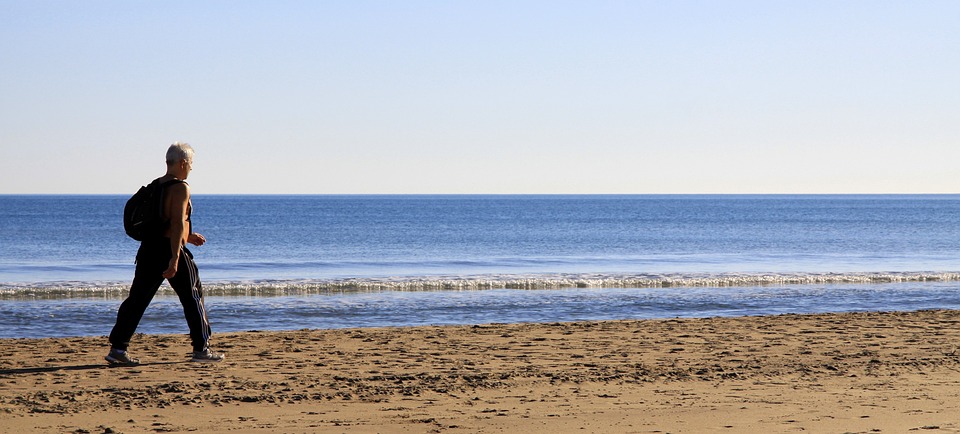10 Effective Relaxation Techniques for a Stress-Free Life
In today’s fast-paced world, stress has become an inevitable part of our lives. It affects our physical and mental well-being, making it crucial to find effective relaxation techniques to counteract its negative effects. In this blog post, we will explore ten proven techniques that can help you achieve a stress-free life.
1. Deep Breathing Exercises
One of the simplest yet most effective relaxation techniques is deep breathing. By focusing on your breath and taking slow, deep breaths, you can activate your body’s natural relaxation response. Deep breathing increases oxygen flow to the brain, promoting a sense of calmness and reducing stress levels.
2. Progressive Muscle Relaxation
Progressive muscle relaxation is a technique that involves systematically tensing and releasing different muscle groups in your body. By intentionally tensing and then relaxing each muscle group, you can release physical tension and promote a deep state of relaxation.
3. Mindfulness Meditation
Mindfulness meditation is a practice that involves focusing your attention on the present moment without judgment. By cultivating mindfulness, you can reduce stress and anxiety, improve concentration, and enhance overall well-being. Regular practice can help you develop a calm and peaceful state of mind.
4. Yoga
Yoga combines physical postures, breathing exercises, and meditation to promote relaxation and reduce stress. It helps improve flexibility, strength, and balance, while also calming the mind. Practicing yoga regularly can lead to a more balanced and stress-free life.
5. Guided Imagery
Guided imagery is a relaxation technique that involves using your imagination to create mental images that promote relaxation and calmness. By visualizing peaceful scenes or positive outcomes, you can reduce stress and anxiety, and enhance your overall well-being.
6. Aromatherapy
Aromatherapy uses essential oils derived from plants to promote relaxation and reduce stress. Lavender, chamomile, and bergamot are some examples of essential oils known for their calming properties. You can use essential oils in a diffuser, add them to a bath, or even apply them topically for their relaxing effects.
7. Journaling
Writing down your thoughts and feelings in a journal can be a cathartic and stress-relieving practice. Journaling allows you to process emotions, gain perspective, and identify triggers of stress. It can also serve as a tool for self-reflection and personal growth.
8. Tai Chi
Tai Chi is a gentle form of martial art that combines flowing movements and deep breathing. It is often referred to as “moving meditation” and promotes relaxation, balance, and inner peace. Regular practice of Tai Chi can help reduce stress and increase overall well-being.
9. Listening to Music
Listening to soothing music has a profound effect on our emotions and can help us relax and unwind. Slow-tempo instrumental music, classical compositions, or nature sounds are particularly effective in inducing relaxation. Create a playlist of your favorite calming tunes and enjoy the therapeutic benefits of music.
10. Disconnecting from Technology
In today’s digital age, constant exposure to technology can contribute to stress and overwhelm. Taking regular breaks from screens, such as smartphones, computers, and televisions, can help you relax and recharge. Engage in activities that don’t involve technology, such as reading a book, taking a walk in nature, or spending quality time with loved ones.
FAQs
1. How long do I need to practice these relaxation techniques to see results?
The time required to experience the benefits of these relaxation techniques varies from person to person. However, regular practice, even for a few minutes each day, can gradually reduce stress levels and promote a sense of well-being. Consistency is key.
2. Can these techniques be used in combination with other stress management strategies?
Absolutely! These relaxation techniques can complement other stress management strategies, such as exercise, healthy eating, and seeking support from friends or professionals. Incorporating a variety of techniques into your daily routine can enhance their effectiveness.
3. Are these techniques suitable for everyone?
While these relaxation techniques are generally safe for most individuals, it is always advisable to consult with a healthcare professional, especially if you have any underlying medical conditions or concerns. They can provide personalized guidance and ensure these techniques are appropriate for you.
4. How long does it take to master these techniques?
Mastery of these relaxation techniques depends on various factors, including individual dedication, practice, and personal circumstances. It is important to approach these techniques with patience and allow yourself time to explore and integrate them into your life. With consistent effort, you can gradually enhance your relaxation skills.
For further information on relaxation techniques and stress management, visit this website.







